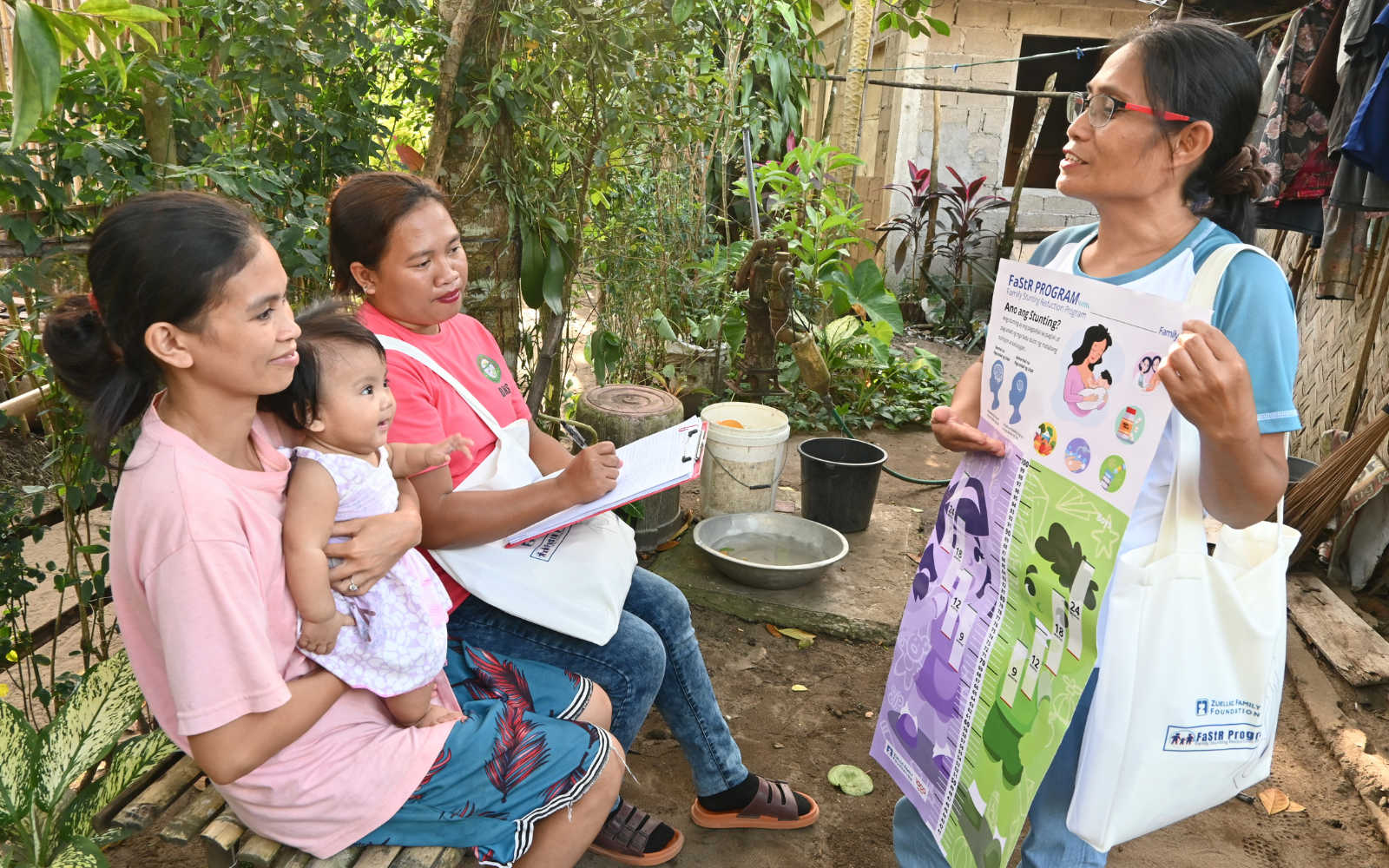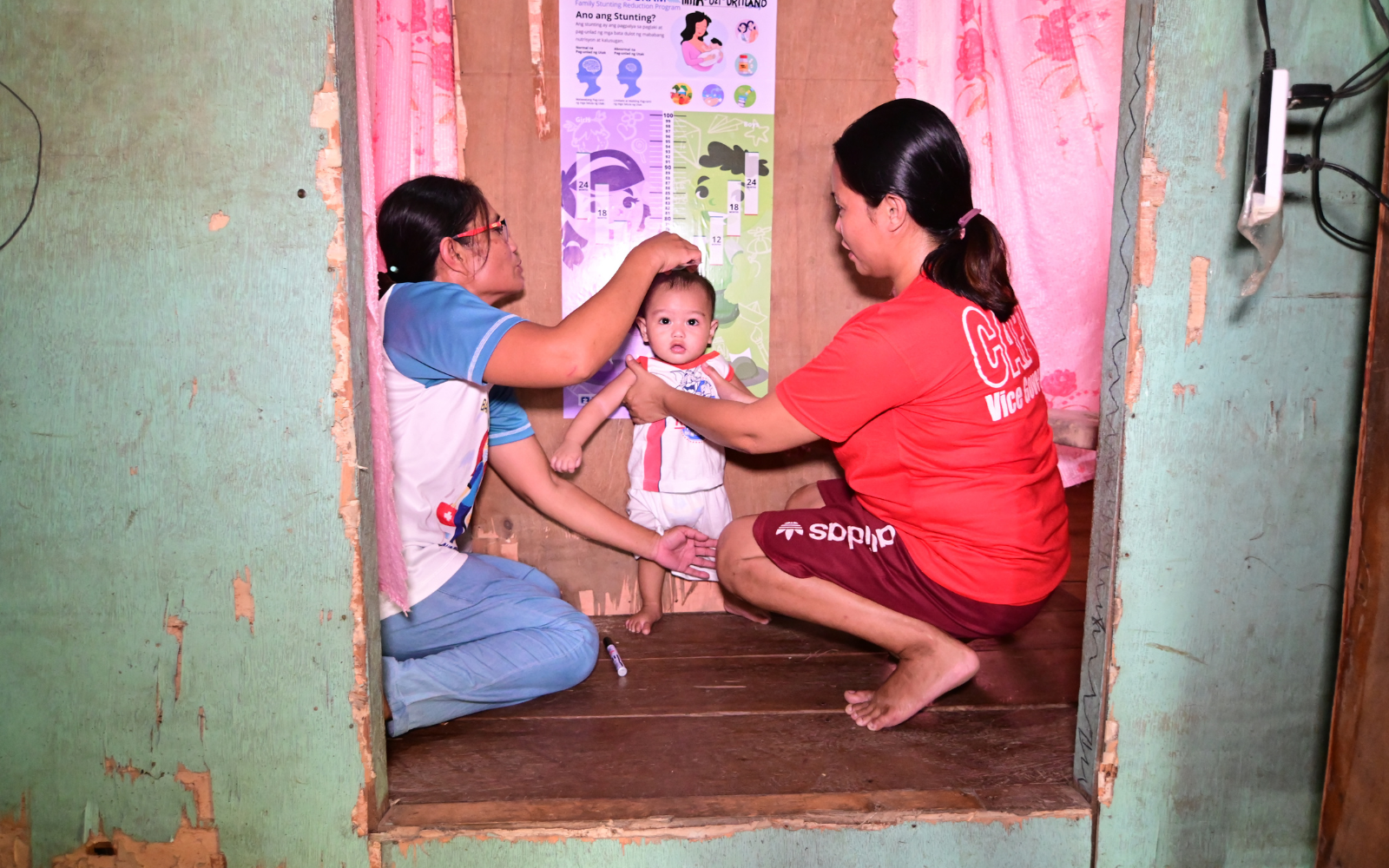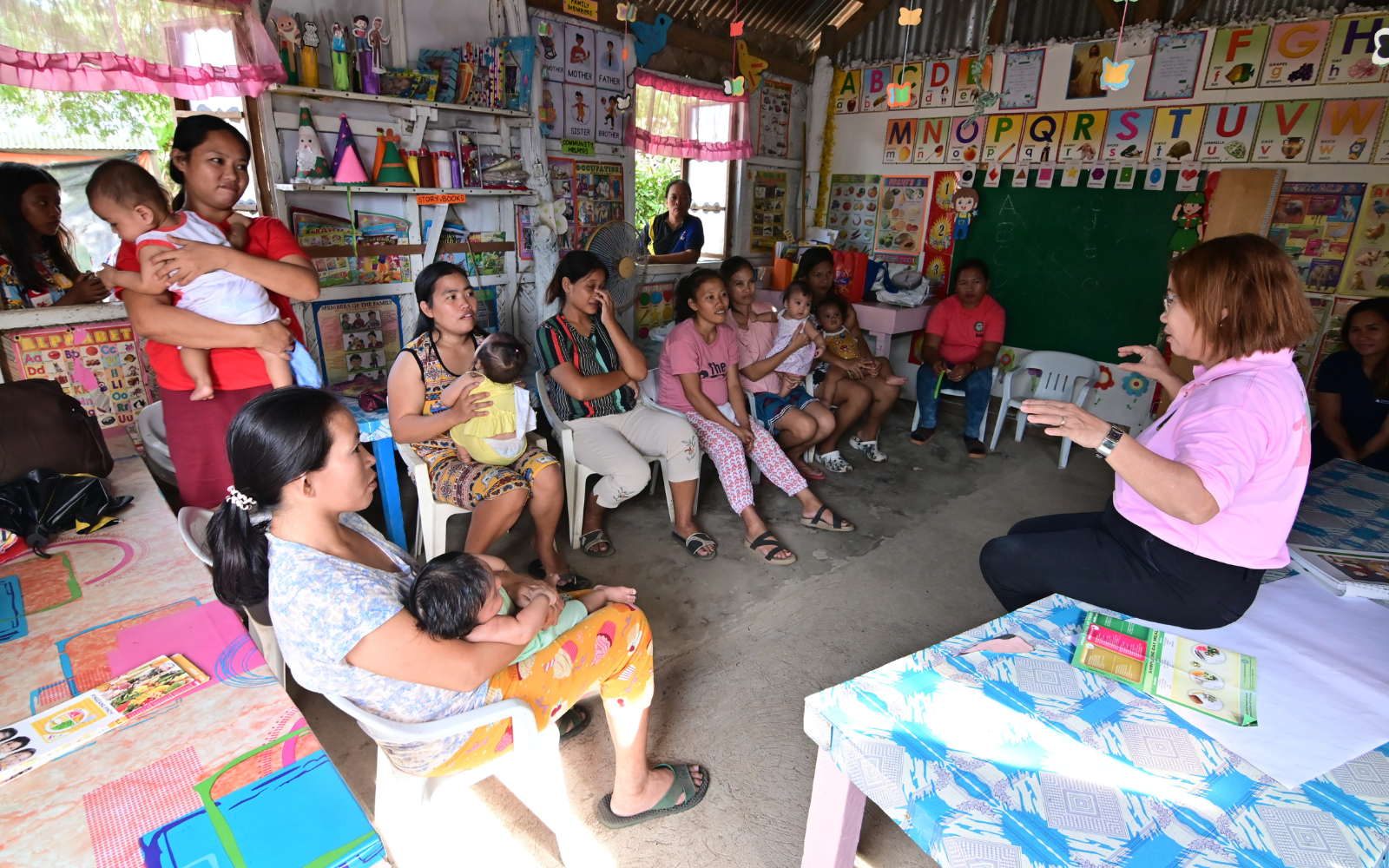Faster Action, Better Nutrition: ZFF’s Family Stunting Reduction Program (FaStR)
Stories | by Krizzia Esperanza

Stunting is a serious health issue that affects millions of children worldwide. In the Philippines, 1 out of 4 children are stunted. This occurs when a child does not receive proper nutrition during the first 1,000 days of life (F1KD), leading to poor growth, delayed development, and long-term health problems. Stunted children are more vulnerable to infections, struggle in school, and face economic disadvantages later in life.
Comparing the country to its Southeast Asian neighbors, the Philippines ranks among the top five with the highest stunting rates. Given this urgent reality, the Zuellig Family Foundation (ZFF) has taken action through its Family Stunting Reduction (FaStR) Program, a family-centered initiative aimed at improving health and nutrition practices among F1KD Families to combat stunting and promote overall well-being.
How FaStR Works

FaStR is a family-focused approach that gives parents and caregivers the tools and knowledge they need to keep their children healthy. It has four key components:
- Educating Families on Health and Nutrition – Parents learn about essential health topics like prenatal care, exclusive breastfeeding, complementary feeding, immunization, and hygiene. They also receive guidance on accessing health services regularly.
- Adopting Family Nutrition Tools – Families are trained to use simple but effective tools like the Mid-Upper Arm Circumference (MUAC) tape to check for malnutrition in children and pregnant or breastfeeding mothers. The FaStR Chart helps them track their child’s growth and development.
- Strengthening Family Food Security – Families are connected to local programs that can help them access nutritious food, ensuring children get the right nutrients at the right time.
- Tracking F1KD Families – Barangay Health Workers (BHWs) and Barangay Nutrition Scholars (BNSs) monitor families with young children to ensure they consistently receive health and nutrition services.
By focusing on families, FaStR makes sure that health interventions reach those who need them most. The program is also built on strong community support, with BHWs and BNSs educating and assisting families.
Where FaStR Is Making a Difference

The program is being piloted in six municipalities: Tarangnan and Pagsanghan in Samar, Bobon and Gamay in Northern Samar, and Tipo-Tipo and Sumisip in Basilan. In these areas, trained facilitators—BHWs and BNSs—are guiding families using the FaStR Family Module.
By focusing on education, nutrition tools, food security, and continuous monitoring, the program is helping families build a foundation for better health. With each household reached, FaStR is making sure that every child has a chance to grow up healthy and thrive.
Related articles:
- Faster Track to Healthier Families: Learn All About ZFF’s Family Stunting Reduction Program (FaStR)
- Nourishing Minds, Nurturing Lives: Zuellig Family Foundation Hosts Webinar on Nutrition Governance
- Learning Milestones in Tipo-Tipo: Advancing Nutrition Systems through ZFF FaStR and Pook Malusog Programs